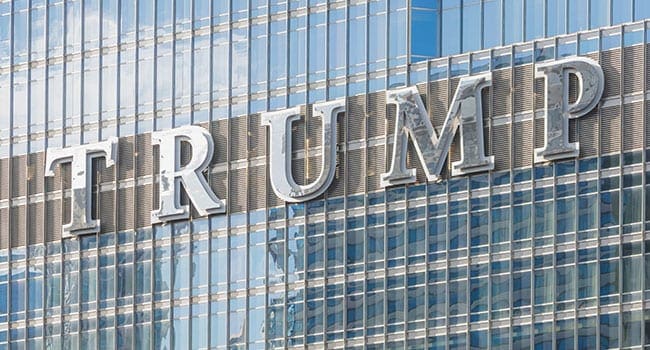 You don’t have to look very far to find fraught (or gleeful) prognostications about an impending Republican crack-up – but the truth may be less obvious.
You don’t have to look very far to find fraught (or gleeful) prognostications about an impending Republican crack-up – but the truth may be less obvious.
And it all comes down to the rise of Donald Trump.
The March 3 issue of the National Post contained several such ruminations, including a front-page piece from Andrew Coyne headlined “GOP facing possible ruin.”
However, the extent to which the Republicans are in mortal danger may turn on a question of definition. Is the Republican Party synonymous with its establishment – loosely characterized as officials (elected and otherwise), big donors, and aligned members of the intellectual class? Or is it the millions of voters who cast their ballots at election time?
If the GOP were a corporation, the establishment would be its management and the voters its shareholders. What’s happening is simple. The shareholders are in open revolt, while management is in denial. Stunned, disconnected and uncomprehending, management seeks to hold on by all available means. The shareholders just can’t be allowed to do the wrong thing!
In addition, the argument has been made that Trump doesn’t represent the majority of Republicans, having only pulled 34 percent of the vote in the 15 states through Super Tuesday.
But, as they say in Texas, that dog won’t hunt.
For one thing, 34 percent in a race that a mere month ago had eight candidates is impressive by any reasonable standard. And more critically, the combined tallies of the three non-establishment outsiders – Trump, Ted Cruz and Ben Carson – account for more than two-thirds of Republican votes cast so far. Clearly, the shareholders are of a mind to turf the management!
Maybe Donald Trump isn’t a buffoon after all by Pat Murphy
To understand how something like this happened, it’s useful to think of political parties as tribes. And the key to maintaining a cohesive tribe is twofold: know who is and isn’t a member, and make sure that members are adequately protected. Arguably, the Republican establishment has increasingly failed to do this.
Over the last half-century, the composition of the Republican tribe has changed. It now includes large numbers of working-class whites whose parents and grandparents voted Democrat. And while this change has been going on, the party’s intellectual leadership has shifted towards free trade and a more relaxed dispensation on immigration, neither of which is necessarily congenial to the interests of the working-class tribesmen.
For instance, immigration can pose an unwelcome challenge to identity by virtue of changing the feel and texture of the social environment. And if much of the immigration is of the low-skill, illegal variety, the resulting job competition can threaten livelihood. The same goes for free trade, particularly the flavour associated with what we now call economic globalization.
Of course, both immigration and globalization also have positive attributes. But the problem for the Republican tribe is that not all members experience it the same way.
For the establishment, immigration – even illegal immigration – can be relatively benign. There isn’t much in the way of downside to everyday life, their jobs aren’t threatened, and the supply of inexpensive labour is enhanced. Hence, someone like Jeb Bush can publicly meditate on illegal immigration as an “act of love.”
The same goes for globalization. If you believe your job is secure and your skill set immune to outsourcing, globalization means cheaper and more varied products to buy. What’s not to like?
In contrast, working-class members have a more mixed experience. For them, the “born in the U.S.A. premium” that once characterized American life has become more tenuous.
In defense of the establishment, it’s only fair to note that the real world is a complicated place where it isn’t easy to balance competing interests, and failure to do so doesn’t necessarily imply any malign intent. But it’s still failure.
Does all of this portend electoral disaster for the Republicans in November? Many pundits, the Post’s Coyne included, believe it does. As the argument goes, even if he’s not the ultimate nominee, Trump has rendered the party unelectable.
Maybe this is a perceptive prognosis, but you’d be hard-pressed to find anything resembling definitive proof in the current polls. According to the Real Clear Politics average, Trump already runs within four points of Hillary Clinton in a hypothetical general election matchup. And Cruz narrowly beats her.
Still, conventional wisdom dies hard, even – perhaps especially – when its proponents think they’re smarter than the average voter.
Pat Murphy casts a history buff’s eye at the goings-on in our world. Never cynical – well perhaps a little bit.
The views, opinions and positions expressed by columnists and contributors are the author’s alone. They do not inherently or expressly reflect the views, opinions and/or positions of our publication.


